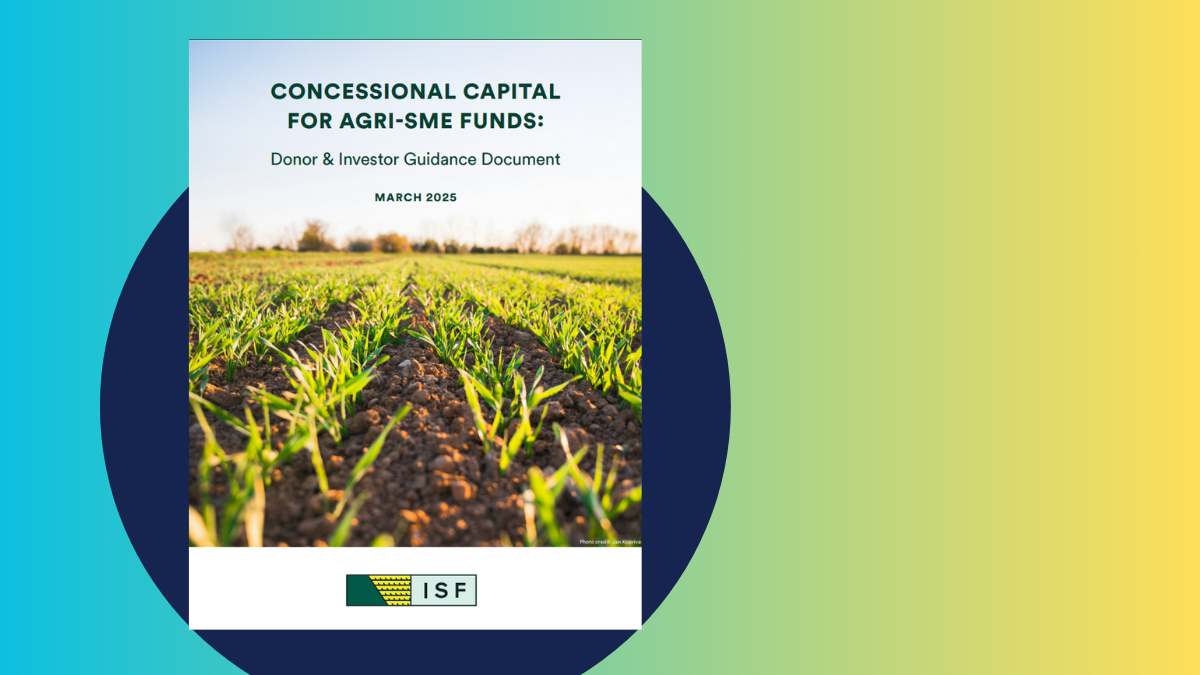This report, authored by ISF Advisors, explores best practices in deploying concessional capital to agri-SME investment funds, addressing Africa’s US$75 billion financing gap and promoting impactful, transparent investment strategies.
The Global Donor Platform for Rural Development (GDPRD) is acknowledged in the report under Recommendations One and Two (on pages 37 and 38).

Despite their vital role in African economies, agri-SMEs in Sub-Saharan Africa still face a significant estimated US$75 billion financing gap. Agri-SME-focused investment funds, with their ability to offer tailored financial products, are ideally positioned to bridge this gap. However, these funds often require concessional capital due to the relatively higher risks and lower returns compared to other sectors.
The Global Donor Platform for Rural Development (GDPRD) is acknowledged in the report through the contributions of Songbae Lee, Co-Chair of the GDPRD’s Thematic Working Group on Sustainable/Blended Finance for Food Systems.


Concessional capital typically comes from bilateral agencies, foundations, family offices, and Development Finance Institutions (DFIs). Yet, current methods of allocating concessional capital to agri-SME investment funds and blended finance investments often lack transparency, limiting the effectiveness of subsidies.
The report, based on research, fund manager data, and interviews with investors, aims to:
Analyze the current use of concessional capital in agri-SME funds
Highlight best practices for deploying concessional capital
Examine the trade-offs investors face when balancing additionality and concessionality
The report also features ten real-world case studies of funds successfully applying best practices in concessional capital deployment.
ISF Advisors is a strategic and financial advisory group committed to mobilizing capital for a more sustainable, equitable, and productive global food system.


















































































































































































































